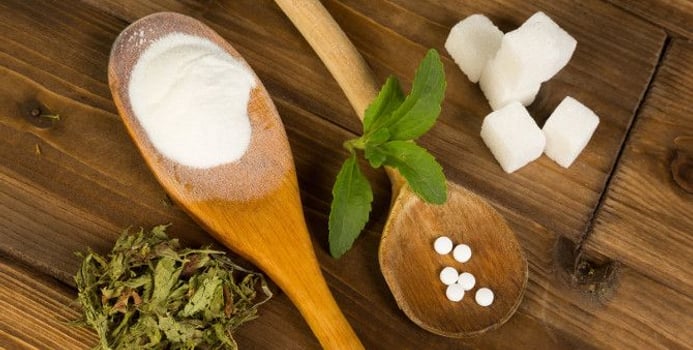There are many things to consider when deciding whether or not to use artificial sweeteners. Many people who are diabetic or are trying to lose weight may be attracted to artificial sweeteners but may not be aware of the risks involved. They also may not be aware of other more natural choices that can still be low calorie and safe for diabetics if used correctly. It's important to consider all the options.
The Potential Hazards of Artificial Sweeteners
Most artificial sweeteners are likely to carry risks that may outweigh the benefit of the lack of calories. Research shows that artificial sweeteners can actually cause a blood-sugar spike and can lessen the body's ability to regulate blood sugar levels. Some artificial sweeteners also have been linked to diseases such as cancer, depression, and certain types of dementia. Most artificial sweeteners are made up of chemicals or sugar that has been chemically altered.
The Advantages of Natural Options
Using a naturally occurring ingredient to sweeten your food helps prevent harmful chemicals from entering your system. There are a range of natural options that can still be safe for diabetics and can add very little calories to food. Many of the natural options also have health benefits such as providing antioxidants or actually helping maintain healthy blood-sugar levels.
Stevia
Stevia is a completely natural sweetener that is the best choice for dieters, diabetics and health-conscious people. It comes from a plant and can be purchased as a powder or a tincture. It has been used for many years in other countries and has recently become more popular in the United States. It has been shown to have beneficial effects on the pancreas. While it can't replace insulin for the diabetic, it can help keep blood sugar levels from spiking or from encouraging sugar cravings. It takes a few weeks to get used to but then it tastes a lot like sugar.
Pure Organic Agave Nectar
This is another all natural sweetener that has less of a glycemic effect than sugar and has no associated health risks if it's in it's natural form. It has some calories but can be used in small amounts. It is especially good for baking breads and can also be used in coffee or tea.
Fruit
Fruit can be used in moderation and can add sweetness as well as fiber and vitamins to many recipes. Including a peeled and pureed orange to a bread recipe adds a lot of sweetness and some excellent nutrition as well. While fruit juice can cause a bit more of a glycemic spike, it's safe in moderation and will have a slower effect when paired with a fat or something with fiber, i.e. adding a little blueberry juice to a low-fat plain yogurt with some chopped nuts.
Sweet Vegetables
There are many vegetables that are great to sweeten soups and breads. Cooked yams are naturally sweet but also high in fiber. Adding some carrots to a soup recipe can help offset the bitterness of healthy greens you may be trying to work with. Carrots or yams can help with a muffin recipe as well.



